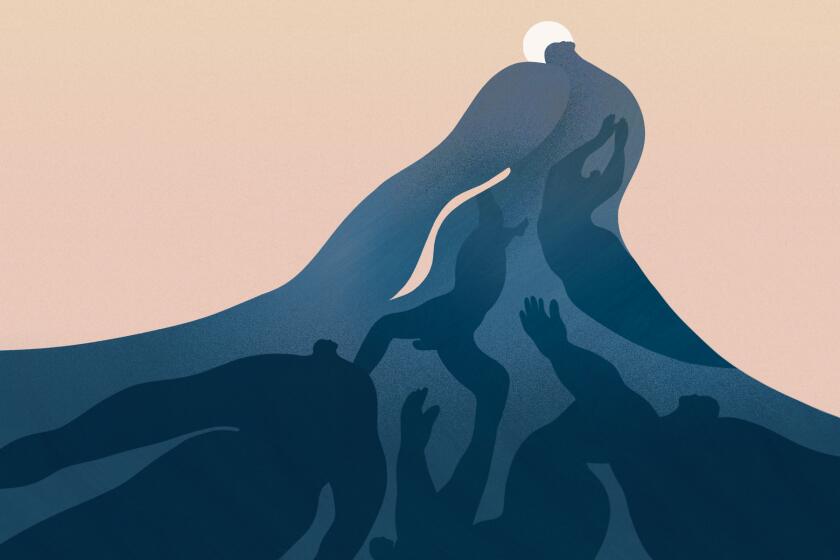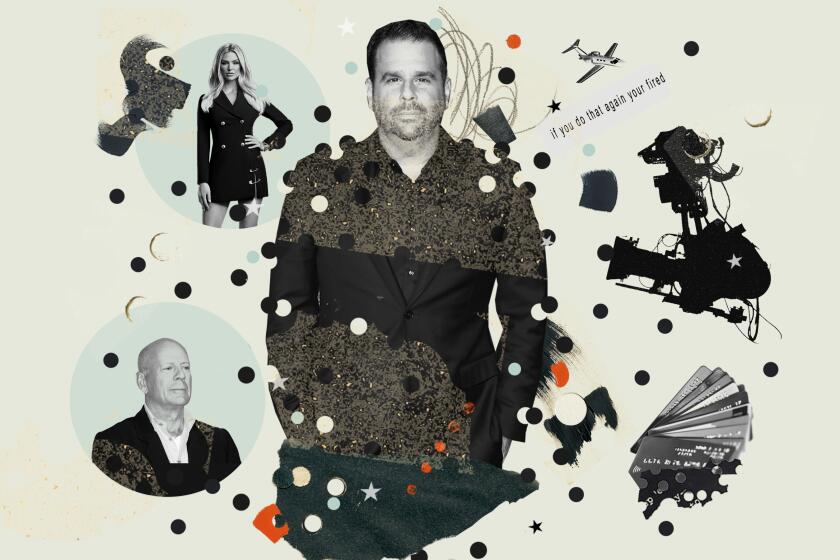Can Hollywood’s abusive culture really change? One author’s proposal to ‘Burn It Down’
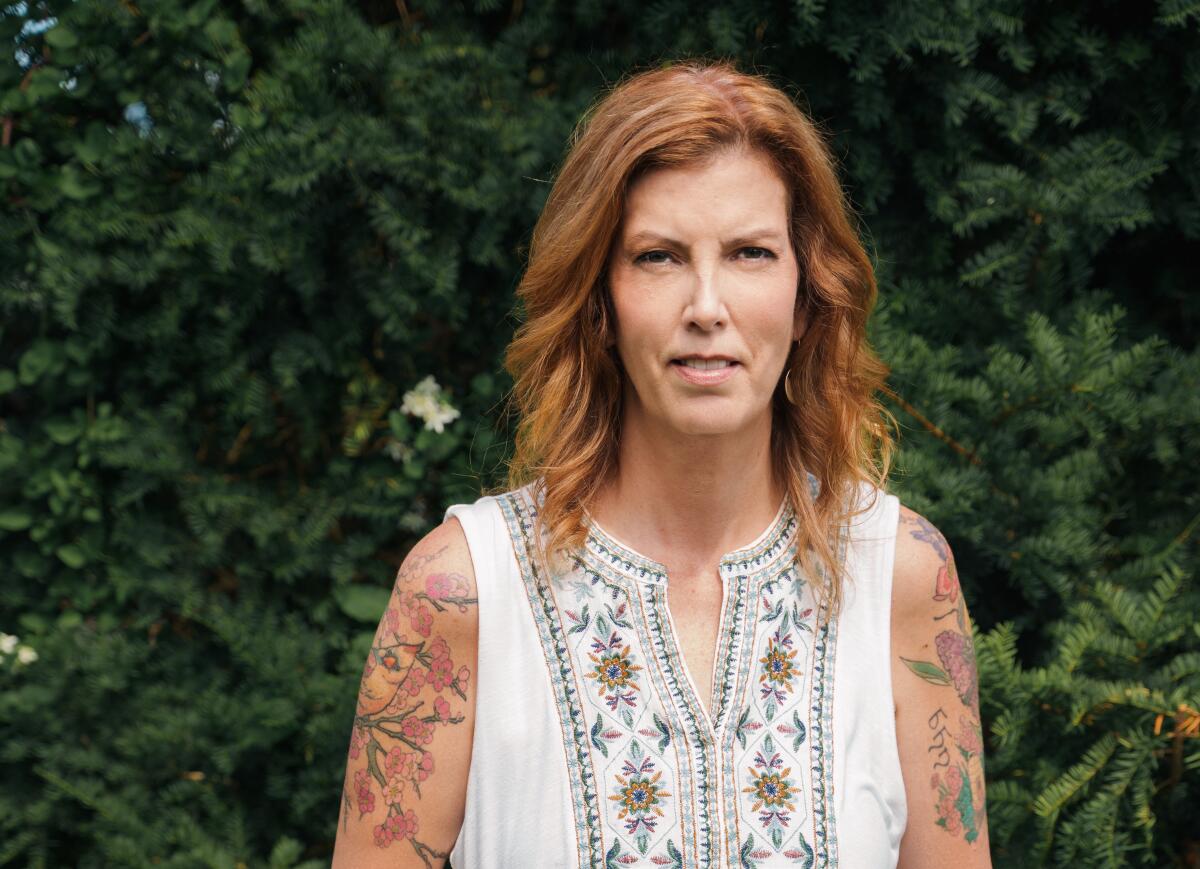
- Share via
Review
Burn It Down: Power, Complicity and a Call for Change in Hollywood
By Maureen Ryan
Mariner: 400 pages, $33
If you buy books linked on our site, The Times may earn a commission from Bookshop.org, whose fees support independent bookstores.
Breaking news: Hollywood is sexist, racist, transphobic and homophobic. That’s the gist of journalist Maureen Ryan’s new book, “Burn It Down: Power: Complicity, and a Call to Change for Hollywood,” a partial overview of cretinous and sometimes felonious alleged behavior in the TV business.
For the record:
4:53 p.m. June 15, 2023An earlier version of this article erroneously said “Sleepy Hollow” showrunner Mark Goffman was among those alleged to have targeted a Black actor with an ugly whisper campaign; Goffman departed the show before that whisper campaign. The article has been updated to include Goffman’s defense of his record.
Culprits include the usual suspects — Harvey Weinstein, Scott Rudin and Les Moonves. Ryan adds others such as Horatio Sanz, who was accused of grooming and sexually assaulting an underage “SNL” fan when he was a cast member, in a case settled last year.
These are just some passages from Ryan’s breathless compendium of malfeasance, which provides a valuable service in giving voice to those who have long gone unheard. But in placing sexual assault allegations alongside other complaints — writers and actors upset about being sidelined, for example — her book risks diminishing the former.
“Lost” showrunners Carlton Cuse and Damon Lindelof are accused of overseeing a frat-like writers room fueled by racist and sexist humor, and ignoring comments from Black cast member Harold Perrineau about representation. Ryan also reports on purported turmoil among the cast and crew of “Sleepy Hollow,” including alleged unfair treatment of Black co-star Nicole Beharie. The author also notes some sources who speculate that “the show’s various issues may have caused fewer headaches had ‘Sleepy Hollow’ had more effective leadership from [showrunner Mark] Goffman.”(Goffman has defended his record, telling The Times that during no part of his career has he been involved in the type of harassment or racist treatment alleged by other subjects in Ryan’s book.)
If you were in a newsroom during #MeToo, you know it wasn’t a witch hunt; it was like watching a mile-high dam break.
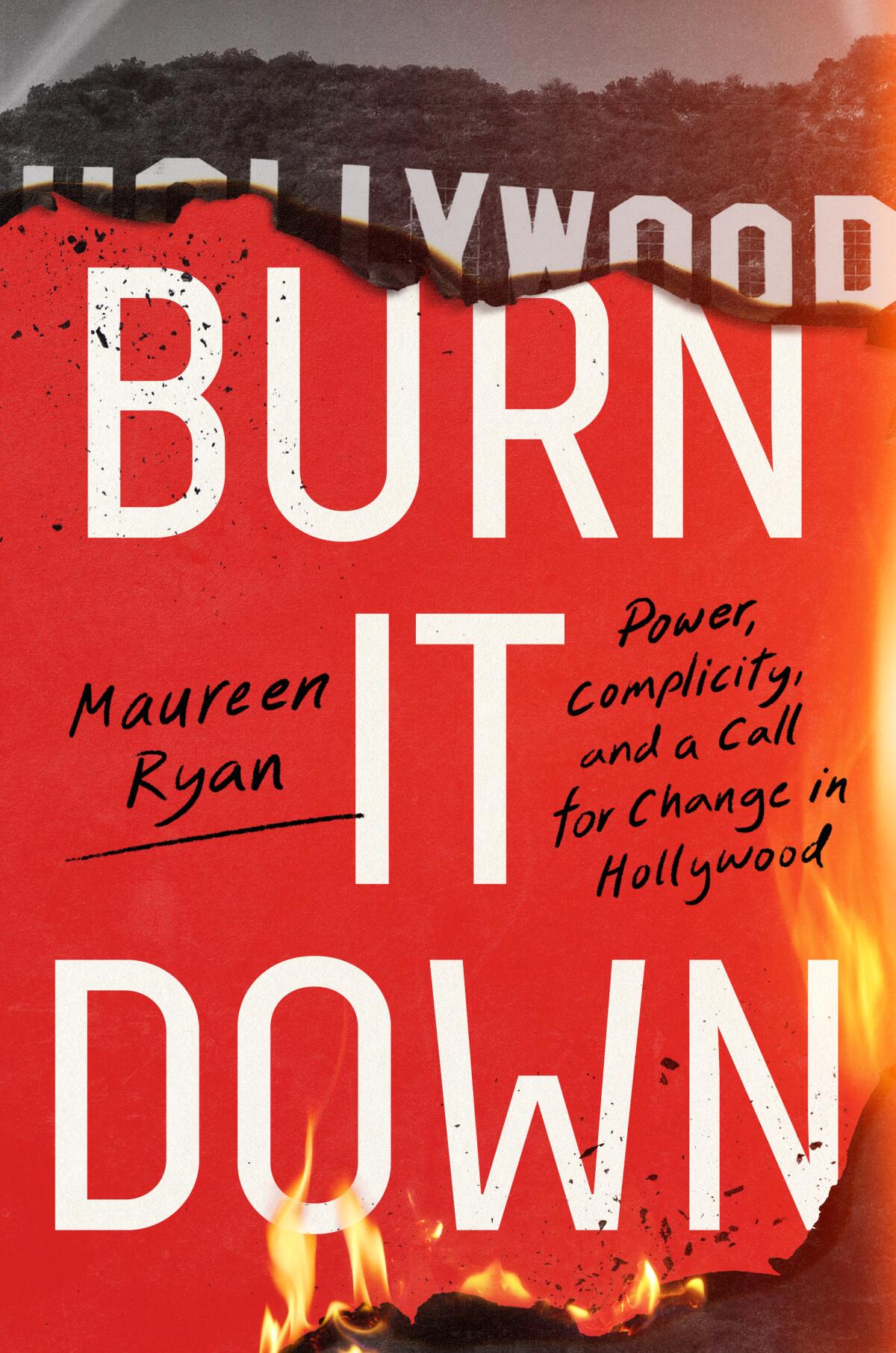
Insofar as these alleged behaviors are connected, they might be considered symptoms of a fundamental gap between how Hollywood works and how many, including Ryan, feel it should work. Even while acknowledging that the entertainment industry is autocratic, she applies democratic notions of fairness, a concept commonly trampled within organizations driven only by profit. Sometimes in democracies people have recourse against those who abuse power. Not in autocracies. And sometimes in democracies, bad guys lose at the polls. Not in autocracies.
Most new transgressions cited in Ryan’s book are not unlawful, leaving those who feel mistreated little or no recourse. Sure, there are avenues by which complaints can be lodged, but the power structure usually sides with successful showrunners over writers and actors. Human-resources procedures and other safeguards are primarily invested in quashing or avoiding controversy so as not to tie up production. None of it is right, but it should not come as a surprise when the underdog loses.
The book’s first part consists of chapters titled with various myths to be debunked: “The Myth of Necessary Monsters,” “The Myth of Meritocracy,” “The Toxic Myth of Creativity” and so on. Here, Ryan sharply targets an array of institutions and ideas, including the overriding myth of the “genius” (a book could be written on the misuse of the word), who in Hollywood often assumes the shape of a jackass, usually white and male. The geniuses say and do offensive things while enablers look the other way — a price purportedly worth paying for art.
The ex-fiance of reality star Lala Kent faces the collapse of his company amid a trail of lawsuits, civil fraud charges and allegations of abusive behavior.
The second part of “Burn It Down” offers solutions. Rabbi Danya Ruttenberg shares advice for offenders on being better and seeking redemption. Psychologist Bo Travis suggests ways for offenders to identify their personal shortcomings and correct them. Also on hand is Kyra Jones, an activist filmmaker who provides hints of what restorative justice might look like. The catch is that showrunners who are successful despite their repugnant behavior have no incentive to change.
And contrary to what we’d like to believe, an unhealthy atmosphere on a production is not necessarily a formula for failure. Look no further than classics such as “Titanic,” “The Birds” or, back in the silent era, Erich von Stroheim’s masterpiece, “Greed,” on which scenes were shot during the summer in Death Valley and technicians dropped like flies.
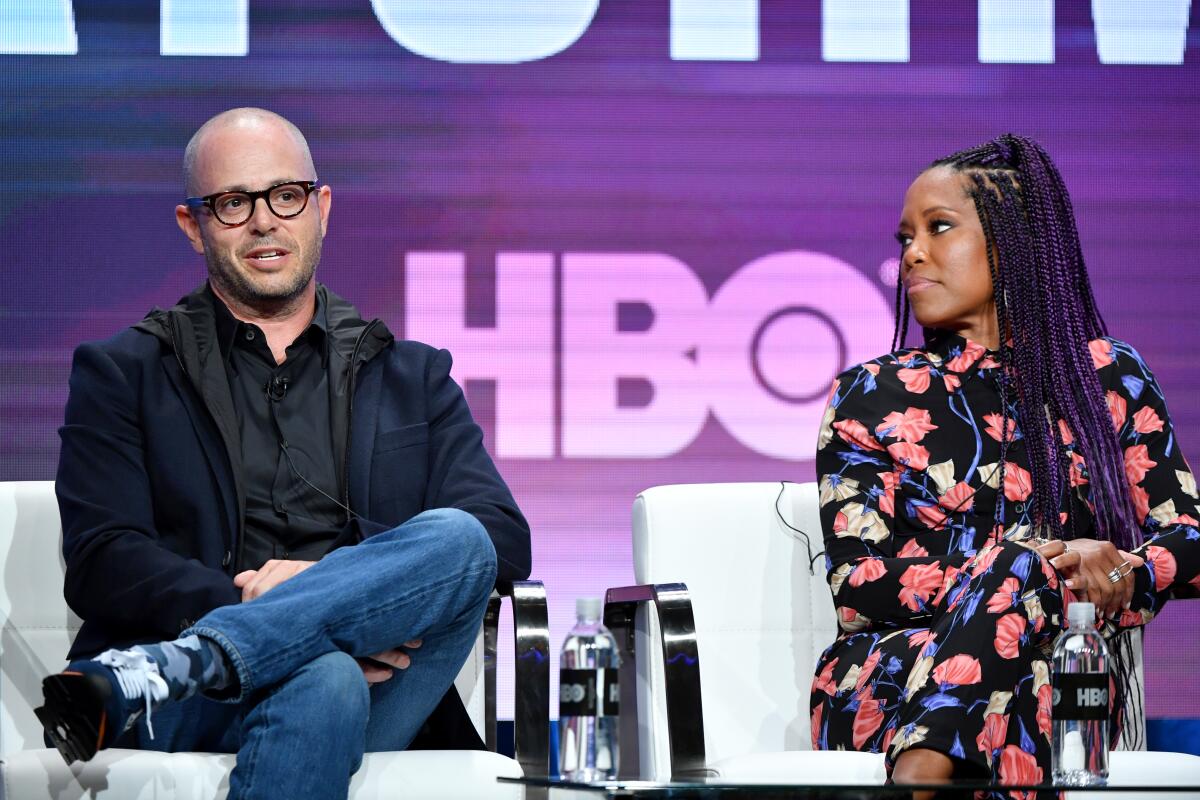
Cuse wrote to Ryan that he denies saying the noxious things attributed to him. Lindelof maintains he has no recollection of the toxic incidents described in the book, adding that they took place roughly 17 years ago. In fact, most of the transgressions cited occurred before #TimesUp and #MeToo. While no one believes a few hashtags fixed endemic abuse in Hollywood, it seems odd not to focus on current offenders in support of an argument that nothing has changed. That said, as Ryan told the Hollywood Reporter, past offenders are still active in the industry.
The entertainment business has always been abusive. Those who run it exercise great power over those who will put up with nearly anything in pursuit of their dream. Stronger unions could provide safer guardrails, but that would require organizations like the WGA to target some of their high-profile members. Such a course, as reported in the book, would undermine the guild’s unity.
HBO’s “Watchmen” examines race, white supremacy and police brutality. Sunday night’s series premiere has creator Damon Lindelof asking, “Should we have done it?”
Ryan’s solution to the rot and corruption is found in the title of her book: Burn it down. It sounds radical, but she doesn’t really mean it. In a section under that heading, she writes about the regenerative qualities a wildfire has on the forest, clearing away brush and enriching the soil. Terrific, but what would be the mechanism by which a successful and profitable entertainment industry would be dismantled and rebuilt?
A veteran TV reporter and contributing editor at Vanity Fair, Ryan employs a conversational, bloggy writing style, revealing personal details that have little to do with Hollywood abuses. What does feel relevant is her experience being assaulted by a TV exec, which gets a mere fragment of a sentence here but was discussed in full in a 2017 article in Variety. Maybe she feels she’s said all she can and has no interest in rehashing her trauma, but a little more about her personal stake in fixing abuses might have made her argument even more pointed and emotionally resonant.
“Burn It Down” further pulls back a curtain of silence that’s already half-open, but never seems to come fully undone. And while it isn’t likely to be a game-changer, any forum that gives voice to the voiceless is a valuable one.
More to Read
Sign up for our Book Club newsletter
Get the latest news, events and more from the Los Angeles Times Book Club, and help us get L.A. reading and talking.
You may occasionally receive promotional content from the Los Angeles Times.
